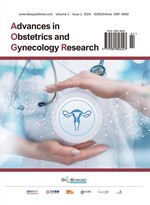Abstract
Objective: To determine the relationship between body image and self-esteem of women who underwent total abdominal hysterectomy bilateral salpingo-oophorectomy (TAH-BSO). Method: The sample of the descriptive study consisted of 118 women who underwent TAH-BSO in the obstetrics and gynecology service of a university hospital in Mersin. Data was collected using a self-made questionnaire, the Body Perception Scale (BAS), and the Rosenberg Self-Esteem Scale (RBSS). Descriptive statistics included median, mean, standard deviation, number, and percentage values. Data evaluation methods included Mann-Whitney U Test and t-test to compare the means of two groups; Kruskal Wallis test and one-way ANOVA were used to compare the means of more than two groups; and Spearman correlation coefficient was used to determine the relationship between two continuous variables. Results: The mean age of the women was 50.13 ± 9.57, and the mean duration of marriage was 26.53 ± 11.97 years. It was found that 86.4% of the women were married, 40.7% were primary school graduates, and 55.1% had at least three children. Besides, 47.5% of the women applied to the hospital with the complaint of bleeding and according to 39% of them, the uterus meant nothing to them. Furthermore, the mean score of the women in BAI was 151.05 ± 26.64, and the mean score from RBSS was 5.02 ± 1.08. In the study, it was found that there was no statistically significant relationship between BAI and RBRS (r = -0.113; P = 0.224). Conclusion: In this study, it was determined that TAH-BSO surgery did not have a negative effect on women’s body perceptions and self-esteem. This result shows that women’s perspectives on common gynecological surgeries such as TAH-BSO have changed.
References
Centers for Disease Control and Prevention, 2019, QuickStats: Percentage of Women Aged ? 50 Years Who Have Had a Hysterectomy, by Race/Ethnicity and Year — National Health Interview Survey, United States, 2008 and 2018. MMWR Morb Mortal Wkly Rep, 68: 935. http://dx.doi.org/10.15585/mmwr.mm6841a3
Ta?k?n L, 2016, Maternity and Women's Health Nursing. Expanded 13th Edition. Academician, Medical Bookstore Ankara.
Okumu? F, Ery?lmaz YH, 2007, Sexual Function After Hysterectomy in Women. Journal of Education and Research in Nursing, 4(2): 5–8.
Co?kun A, 2012, Women’s Health and Diseases Nursing Handbook. 1st Edition. Koç University Publications, Istanbul.
Giacomoni C, Venturini E, Hoarau H, et al., 2014, How Women with Gynecological Cancer Deal with Treatment: Issues of Visibility and Invisibility. Gynécologie Obstétrique & Fertilité, 42(11): 795–799.
Reis N, Engin R, ?ngeç M, et al., 2008, A Qualitative Study: Beliefs and Attitudes of Women Undergoing Abdominal Hysterectomy in Turkey. International Journal of Gynecological Cancer, 18(5): 921–928.
Özdemir F, Pasinlio?lu T, 2009, Determination of the Opinions of Women Who Underwent Hysterectomy About Hysterectomy. Journal of Research and Development in Nursing, 1: 30–37.
Janda M, Gebski V, Brand A, et al., 2010, Quality of Life After Total Laparoscopic Hysterectomy Versus Total Abdominal Hysterectomy for Stage I Endometrial Cancer (LACE): A Randomized Trial. The Lancet Oncology.11(8): 772–780.
Pinar G, Okdem S, Dogan N, et al., 2012, The Effects of Hysterectomy on Body Image, Self-Esteem, and Marital Adjustment in Turkish Women with Gynecologic Cancer. Clin J Oncol Nurs. 16(3): 99–104.
Erdo?an E, Demir S, Çal??kan BB, 2020, Effect of Psychological Care Given to the Women Who Underwent Hysterectomy Before and After the Surgery on Depressive Symptoms, Anxiety and the Body Image Levels. Journal of Obstetrics and Gynaecology. 40(7): 981–987. https://www.doi.org/10.1080/01443615.2019.1678574
Dinçer Cengiz S, Ça?lar GS. Menopause (Multidisciplinary Approach). 1st Edition. Ankara: Modern Medicine Bookstore; 2016.
Gómez?Campelo P, Bragado?Álvarez C, Hernández?Lloreda MJ, 2014, Psychological Distress in Women with Breast and Gynecological Cancer Treated with Radical Surgery. Psycho?Oncology. 23(4): 459–466.
Sevil U, Bulut S, 2007, Hysterectomy and Self-Esteem. Dirim Medical Newspaper, 82(2): 350–356.
K?z?lkaya Beji N, 2015, Women's Health and Diseases –1st Edition, 50th Year Publications, Istanbul.
A?t? Atabek T, Karada? A, 2014, Principles of Nursing (Science and Art of Nursing), Akademi Press and Publishing, Istanbul.
Tözün M, 2010, Self-Esteem. Actual Medicine, 2010: 52–57.
Aslan Y?lmaz H, 2016, A Review: Some Approaches and Definitions Regarding the Concept of Self. Journal of Social Sciences, 8: 79–89.
Yaman ?, Ayaz S, 2015, The Effect of Education Given Before Surgery on Self-Esteem and Body Image in Women Undergoing Hysterectomy. Turkish Journal of Obstetrics and Gynecology, 12(4): 211.
Hovardao?lu S, 1993, Body Perception Scale. Journal of Psychiatry, Psychology, Psychopharmacology (3P), 1(1): 26.
Çuhadaro?lu F, 1986, Self-Esteem in Adolescents, thesis, Hacettepe University.
Couto-Ferreira ME, Verderame L, (eds) 2018, Cultural Constructions of the Uterus in Pre-Modern Societies, Past, and Present, Cambridge Scholars Publishing.
El-Hadidy MA, Zayed A, 2020, Body Image Disturbance and Self-Esteem After Hysterectomy in Egyptian Women. Arab Journal of Psychiatry, 31(2): 150–158.
Alshawish E, Qadous S, Yamani MA, 2020, Experience of Palestinian Women After Hysterectomy Using a Descriptive Phenomenological Study. The Open Nursing Journal, 14(1): 74–79.
Keskin G, Gumus AB, 2011, Turkish Hysterectomy and Mastectomy Patients-Depression, Body Image, Sexual Problems and Spouse Relationships. Asian Pac J Cancer Prev, 12(2): 425–432.
Erbil N, 2018, Attitudes Towards Menopause and Depression, Body Image of Women During Menopause. Alexandria Journal of Medicine. 54(3): 241–246.
